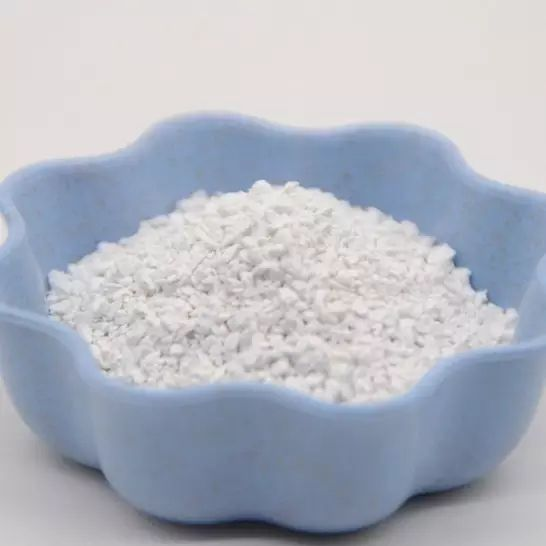Maintaining a sparkling clean swimming pool requires a combination of regular cleaning, filtration, and chemical treatments. Among the various pool maintenance chemicals, flocculant plays a crucial role in clearing up cloudy or murky water, making it one of the essential products in your pool care arsenal. But with so many types of flocculants available on the market in 2025, how do you know which one is the right fit for your pool?

What Is a Flocculant?
A flocculant is a chemical compound used in pool maintenance to help clear up cloudy water. It works by binding to tiny particles (like dirt, algae, and debris) that are too small for the pool’s filter to catch. These particles then clump together, forming larger “flocs,” which can be easily removed by the pool filter or by vacuuming.
There are two main types of flocculants: liquid flocculants and granular flocculants. Liquid flocculants are typically easier to apply and distribute evenly throughout the pool water. Granular flocculants, on the other hand, may require some mixing before use but are generally more concentrated.
Choosing the right flocculant for your pool is critical to ensuring optimal performance and efficiency in clearing up water without harming the pool’s surface or equipment.
How Does a Flocculant Work?
Flocculants work by causing small particles in the water to combine and form larger particles that can then be filtered out. These tiny particles are often too small to be caught by the filter and can remain suspended in the water, causing cloudiness. When a flocculant is added to the pool, it bonds with these particles and causes them to coagulate into larger clumps, or “flocs.” Once formed, these flocs are heavy enough to be trapped in the pool’s filtration system or removed manually using a pool vacuum.
For best results, it’s important to ensure your pool filter is working efficiently before using a flocculant. If the filter is clogged or not running properly, the flocculant will not work as effectively, and you may not achieve the desired clarity.
How to Choose the Best Flocculant for Your Swimming Pool
Choosing the best flocculant for your swimming pool requires consideration of several factors. Here are the main aspects to take into account when making your decision:
1. Type of Pool Water Issues
Different types of water issues may require specific flocculants. Here are some examples:
Cloudy Water: If your pool water is slightly cloudy due to small debris or algae, a standard flocculant will likely work well to clear up the water.
Severe Cloudiness: For pools with very murky water, you may need a more powerful flocculant, which can clear up larger particles and offer a faster solution.
Algae Blooms: If your pool has been affected by an algae bloom, a specialized algae-specific flocculant might be necessary to effectively deal with the algae.
2. Chemical Composition
When you choose a flocculant, it’s important to consider its chemical composition. Some flocculants contain aluminum sulfate, while others use polyaluminum chloride. Both are effective, but each has specific advantages and disadvantages.
Aluminum sulfate is a more traditional flocculant but can sometimes cause staining or scale buildup if not used correctly.
Polyaluminum chloride is gentler on the pool surfaces and equipment and may be a safer choice for regular use in pools with sensitive materials.
3. Pool Type
The type of pool you have can also influence the choice of flocculant. For example, vinyl-lined pools may require gentler flocculants, as stronger chemicals can damage the lining. Similarly, if you have a saltwater pool, you may need a flocculant designed specifically for saltwater systems.
4. Ease of Use
Some flocculants are easier to apply than others. Liquid flocculants are often easier to distribute evenly across the pool, while granular flocculants require mixing and careful application. When deciding on a flocculant, consider how comfortable you are with the application process. If you prefer simplicity, a liquid option may be the best flocculant for you.
5. Environmental Impact
In 2025, many pool owners are becoming increasingly aware of the environmental impact of the chemicals they use. Look for a flocculant that is eco-friendly, biodegradable, and free from harsh chemicals. Some brands offer natural flocculants that are safer for both your pool and the environment.
6. Brand Reputation and Reviews
When you decide to purchase the best flocculant, it’s always a good idea to research brands and check reviews from other pool owners. High-quality, well-reviewed brands tend to offer more reliable and effective products, and customer feedback can provide valuable insight into how well a particular flocculant performs in real-world conditions.
7. Cost vs. Value
While price should not be the only factor in your decision, it is still important to consider the cost of the flocculant. Some high-end products may offer faster or more efficient results, while others may offer a more affordable solution with slightly slower performance. Keep in mind that a more expensive flocculant might be worth the investment if it clears your pool faster or requires less frequent use.
Conclusion
Choosing the best flocculant for your swimming pool in 2025 doesn’t have to be complicated, but it does require careful consideration of factors like water issues, pool type, and ease of use. Whether you’re looking for a basic solution to cloudy water or a more advanced product for severe water clarity issues, there’s a flocculant on the market that can meet your needs. Always ensure you’re purchasing from a reputable source and follow the instructions for application carefully to achieve the clearest, most sparkling water in your pool.
